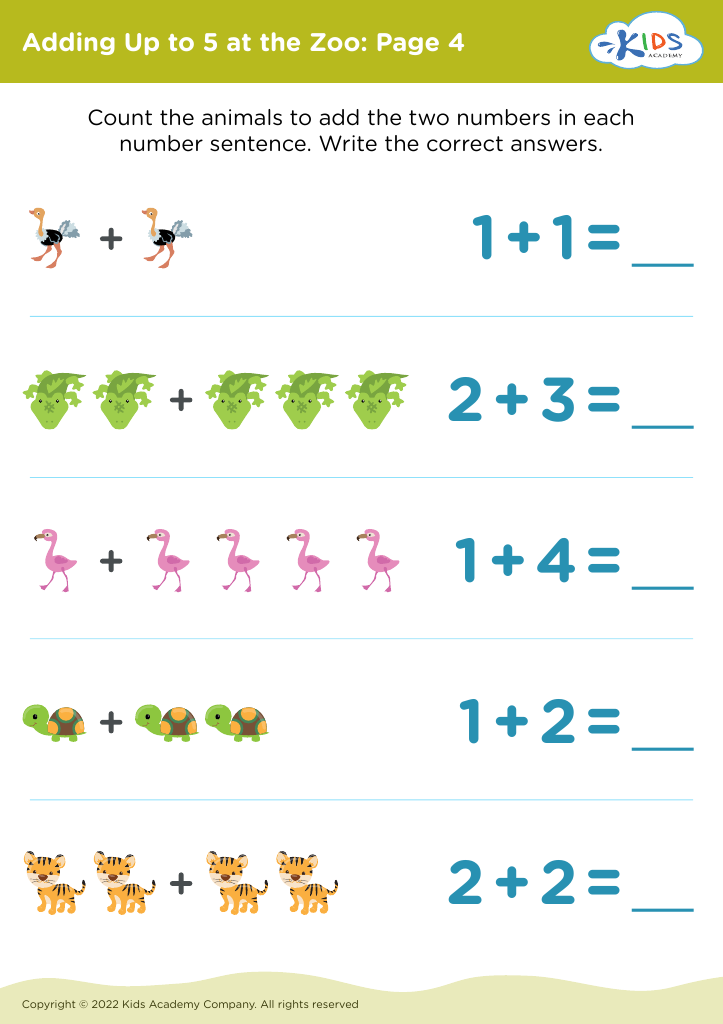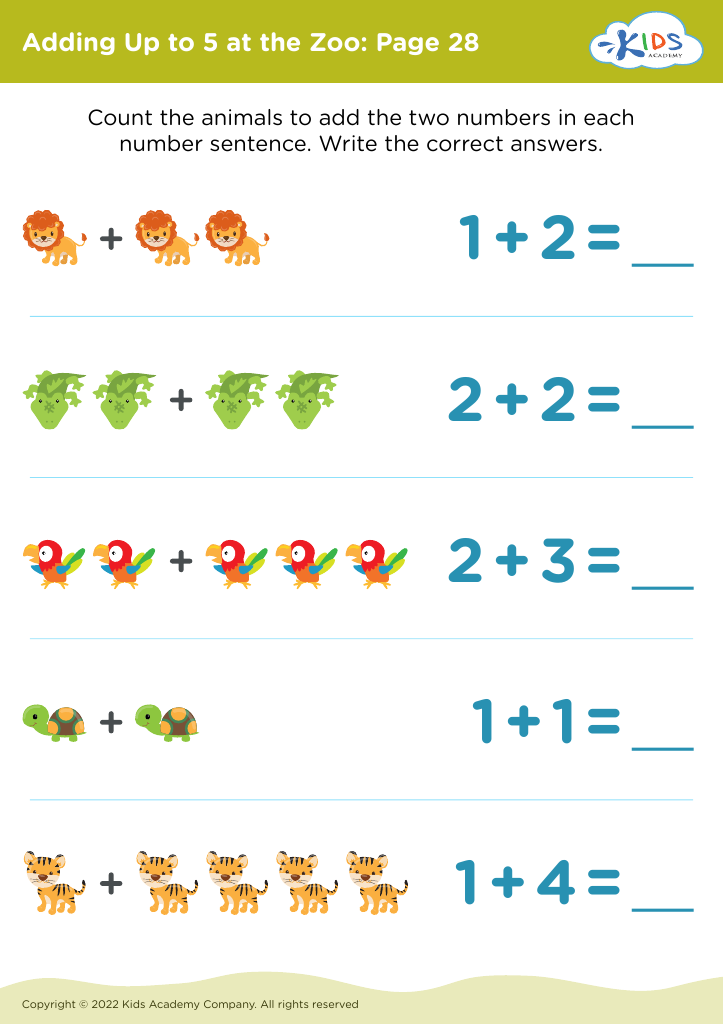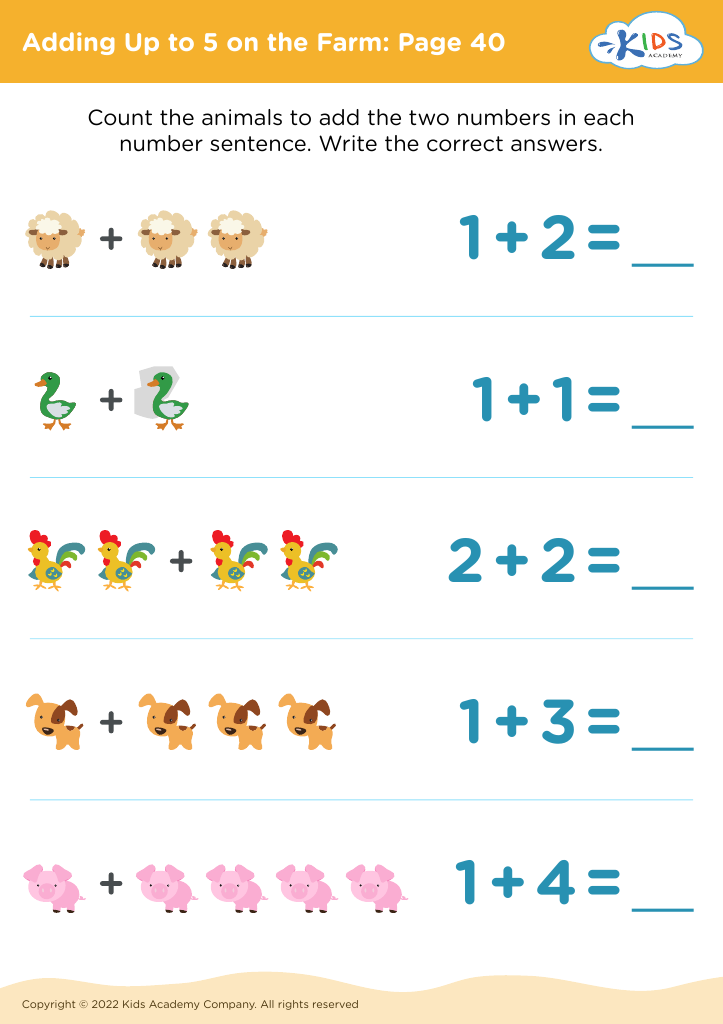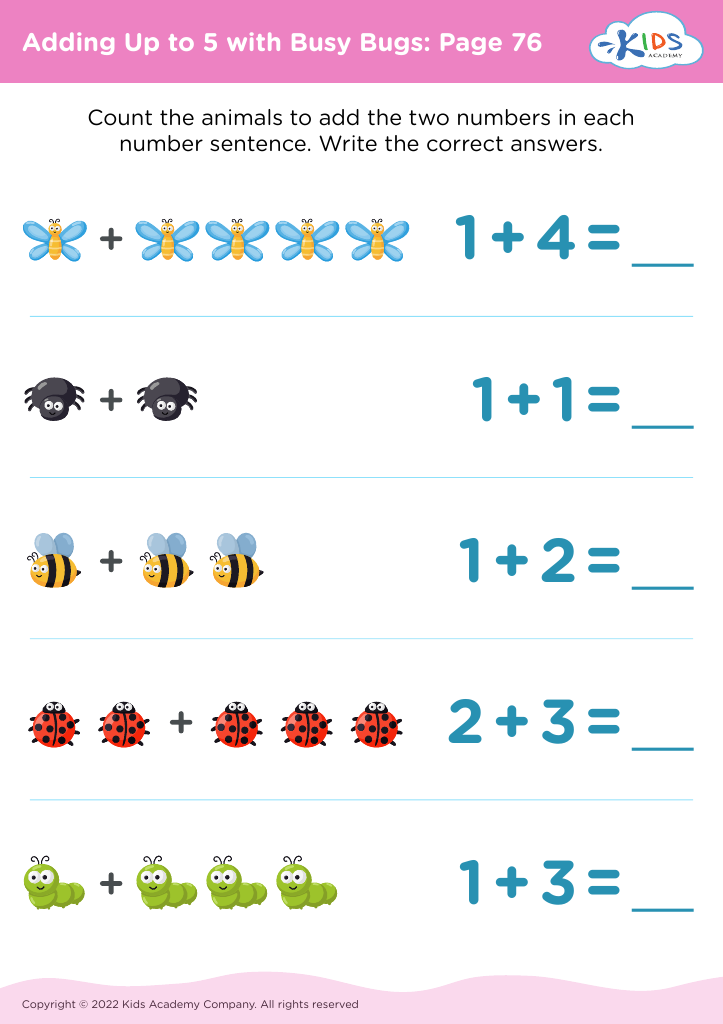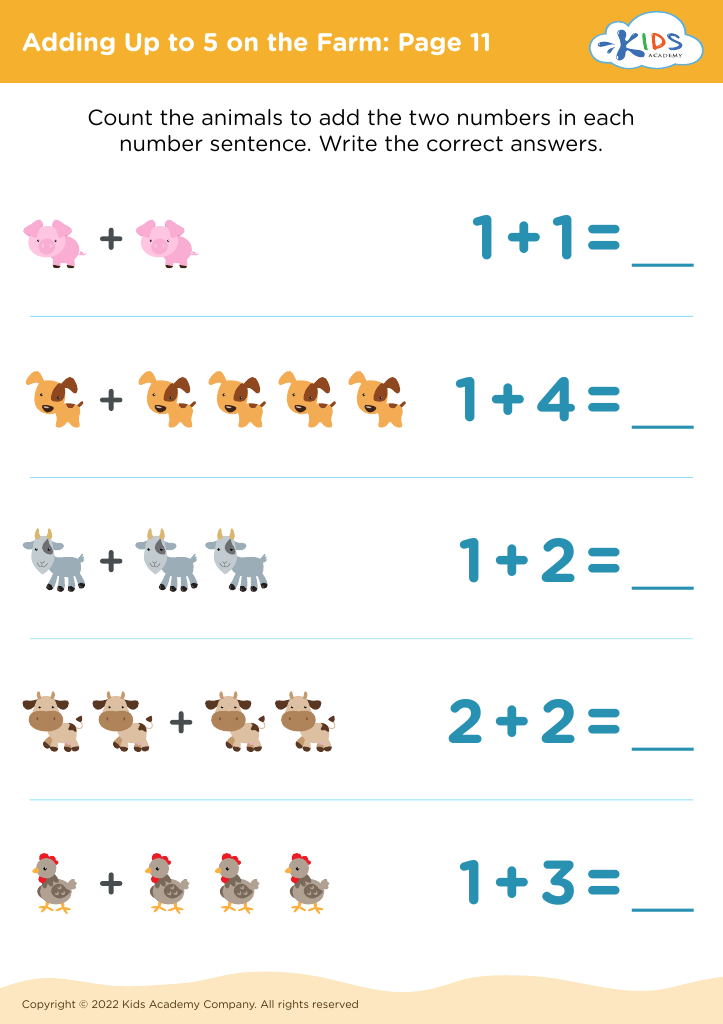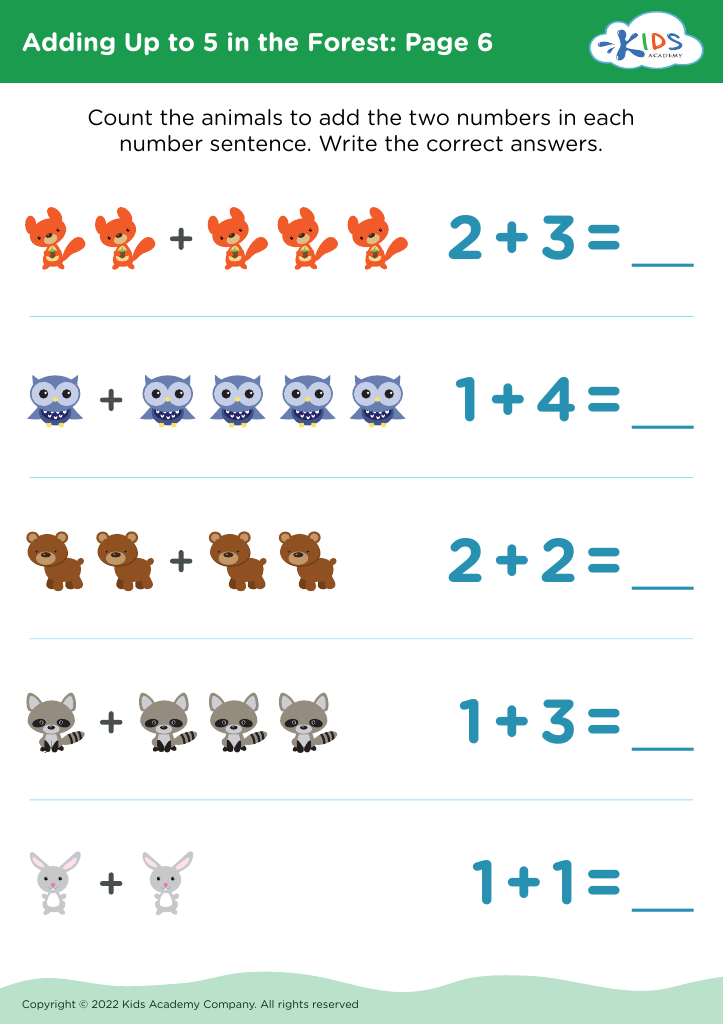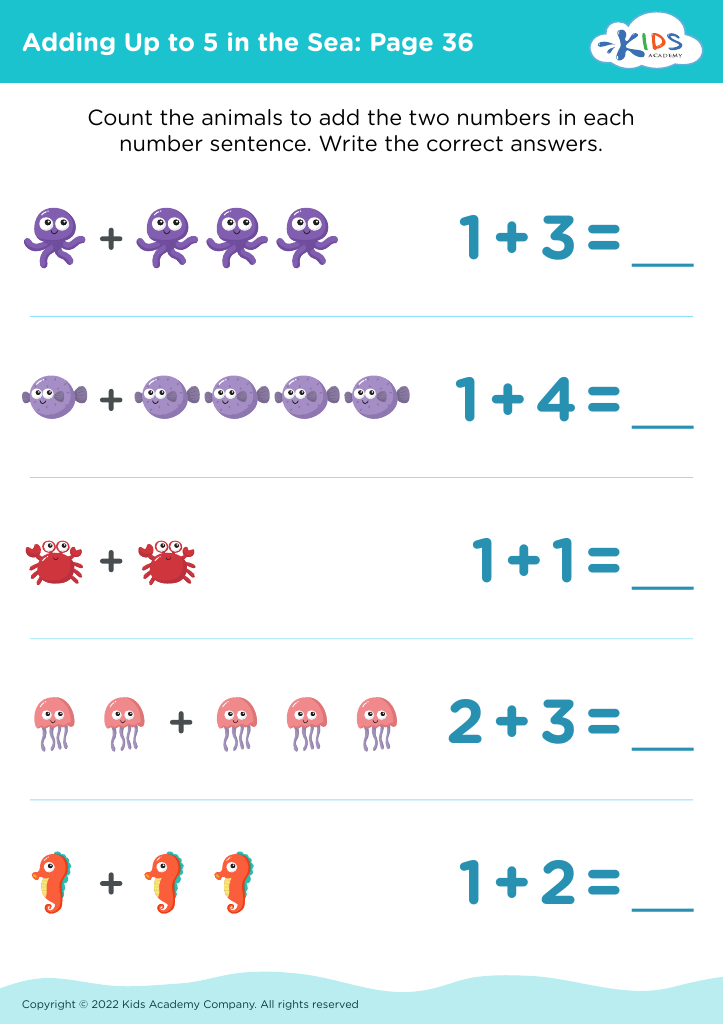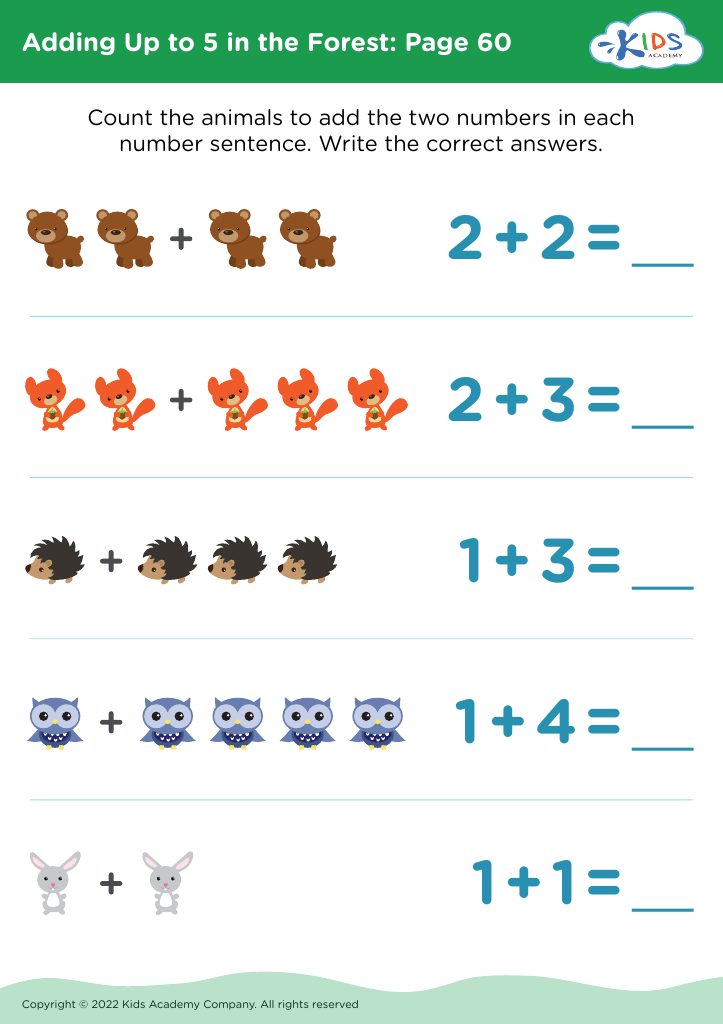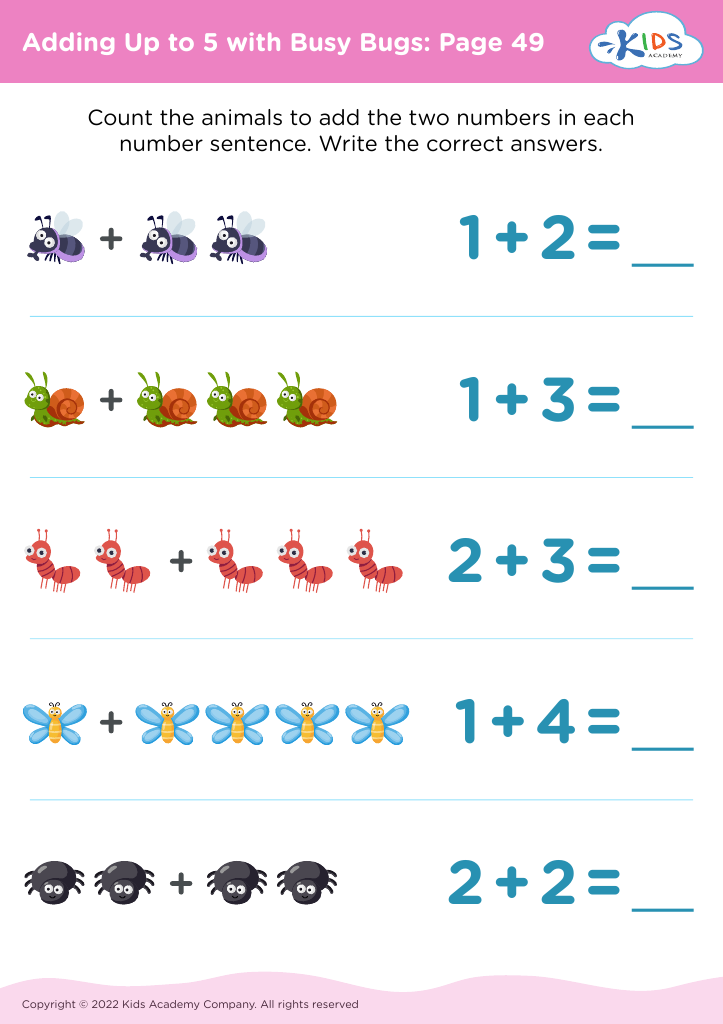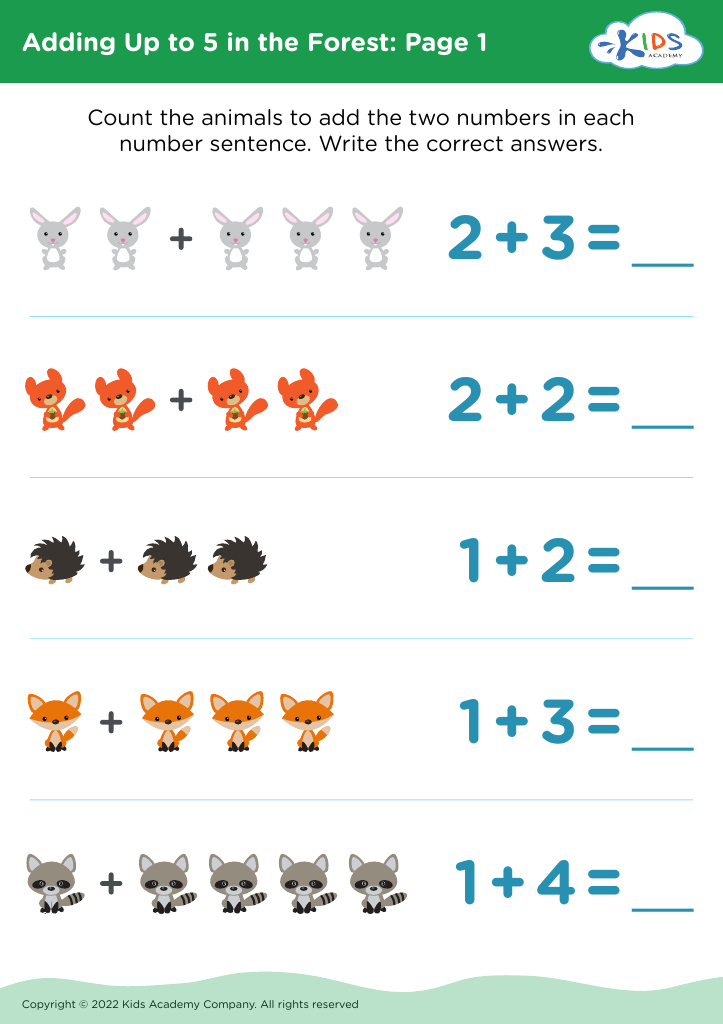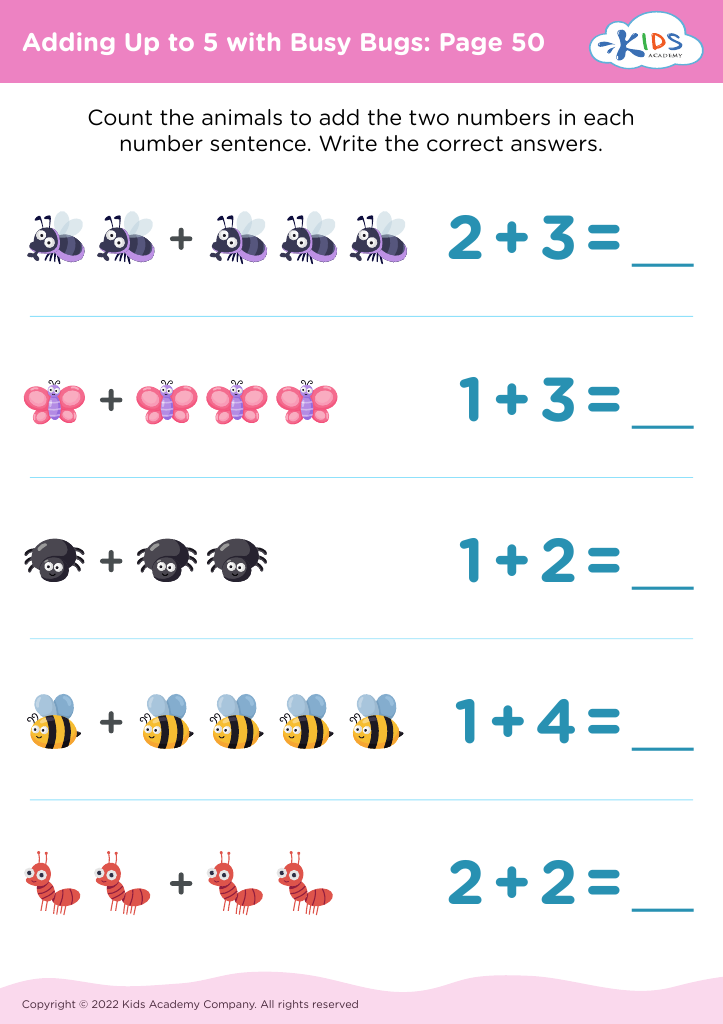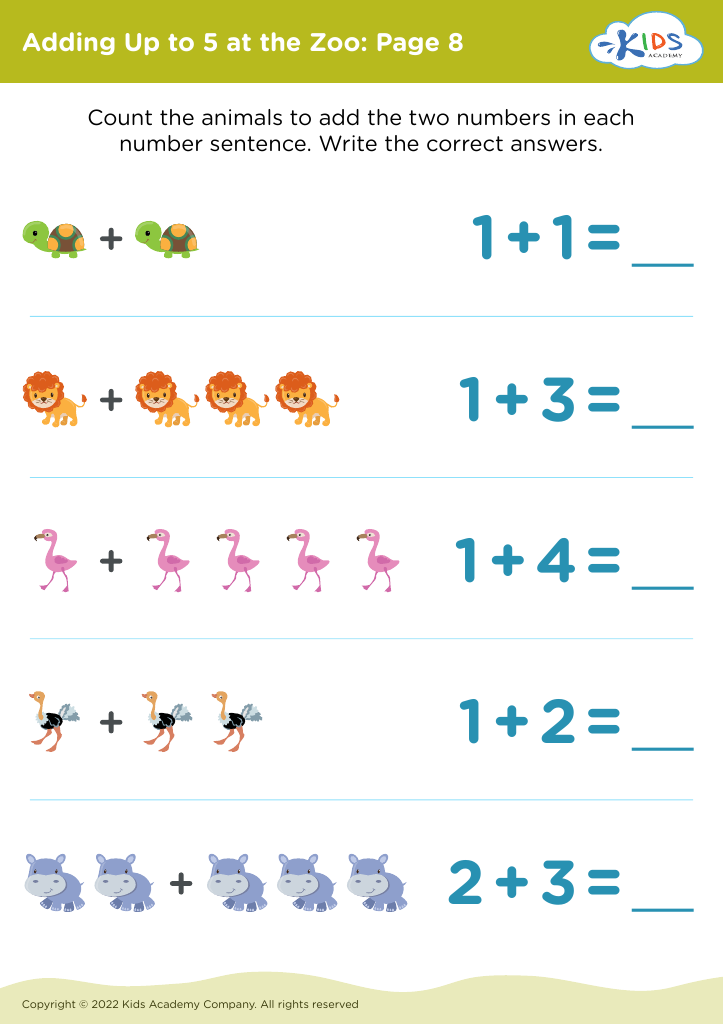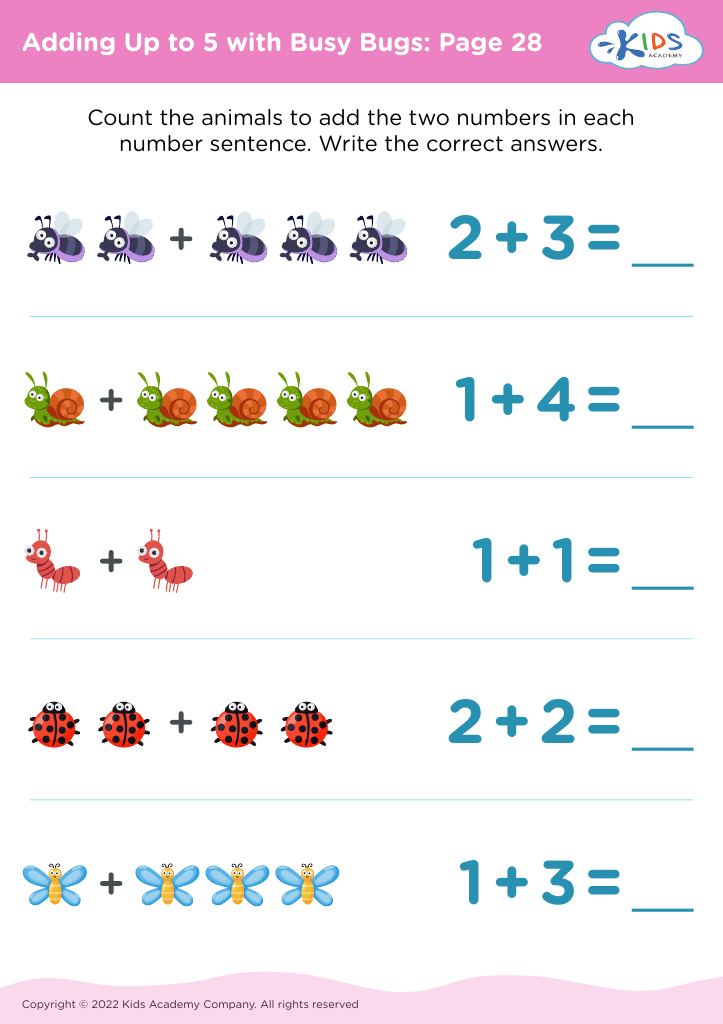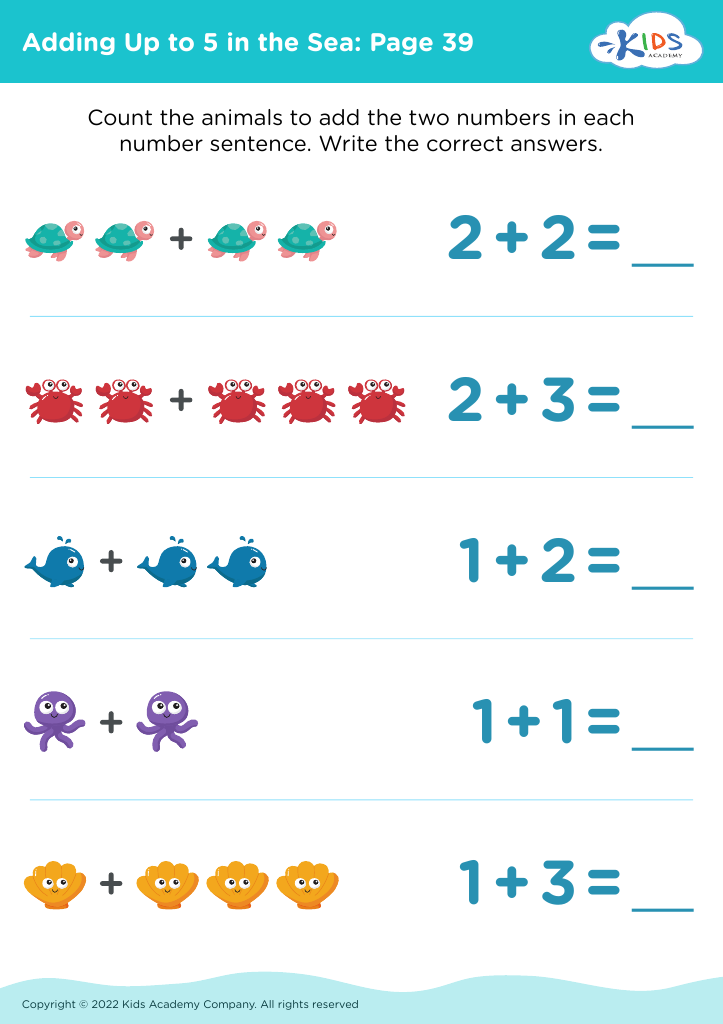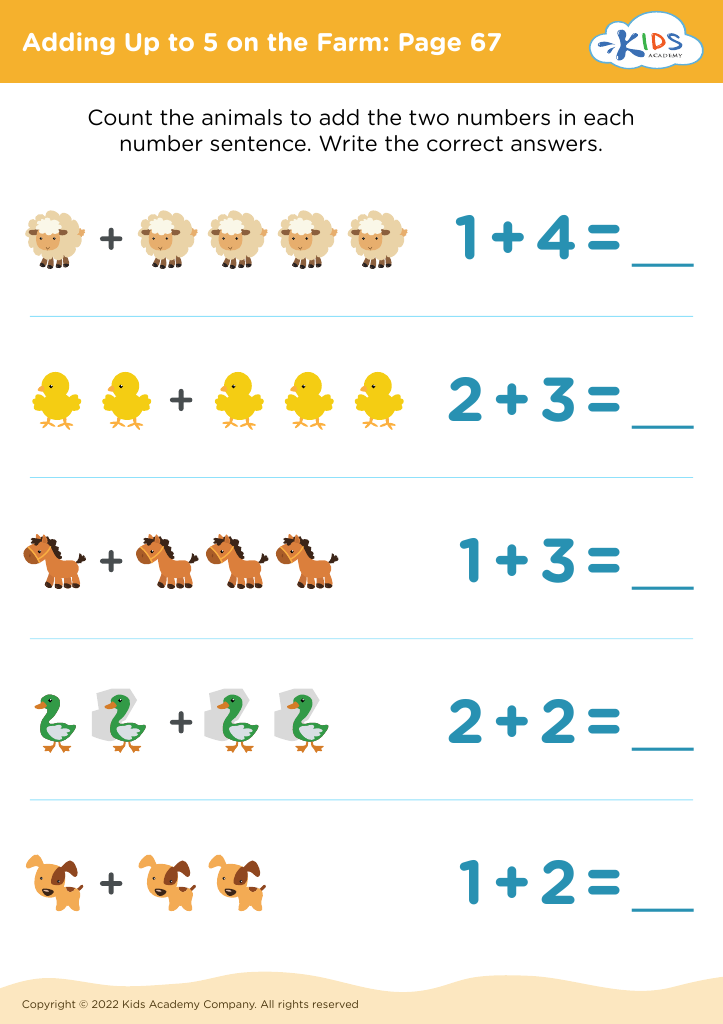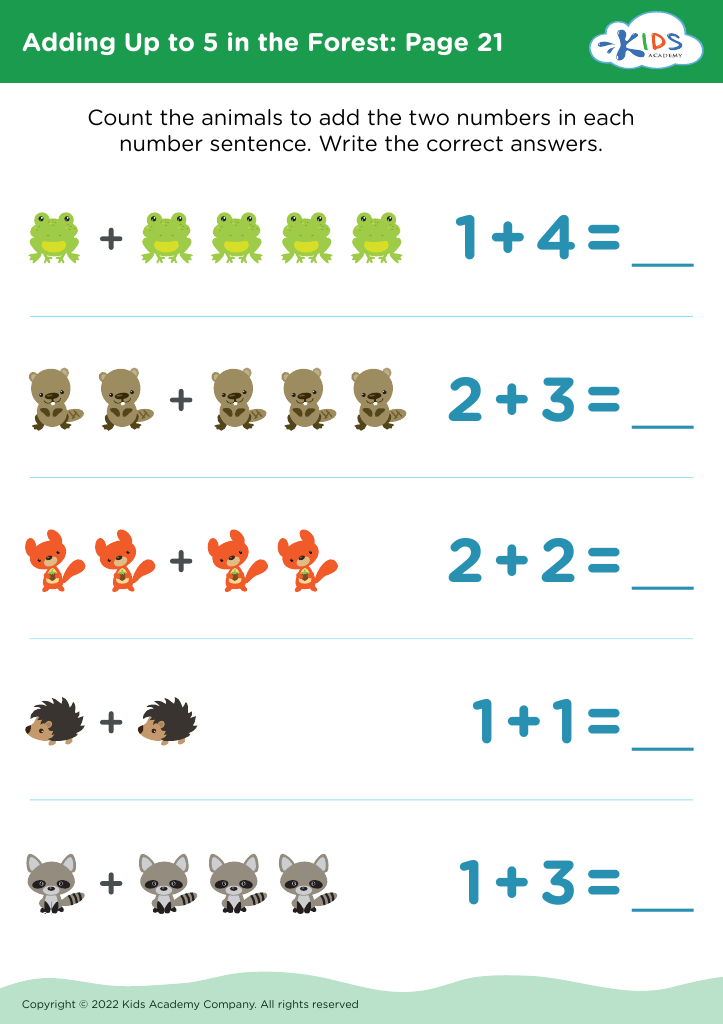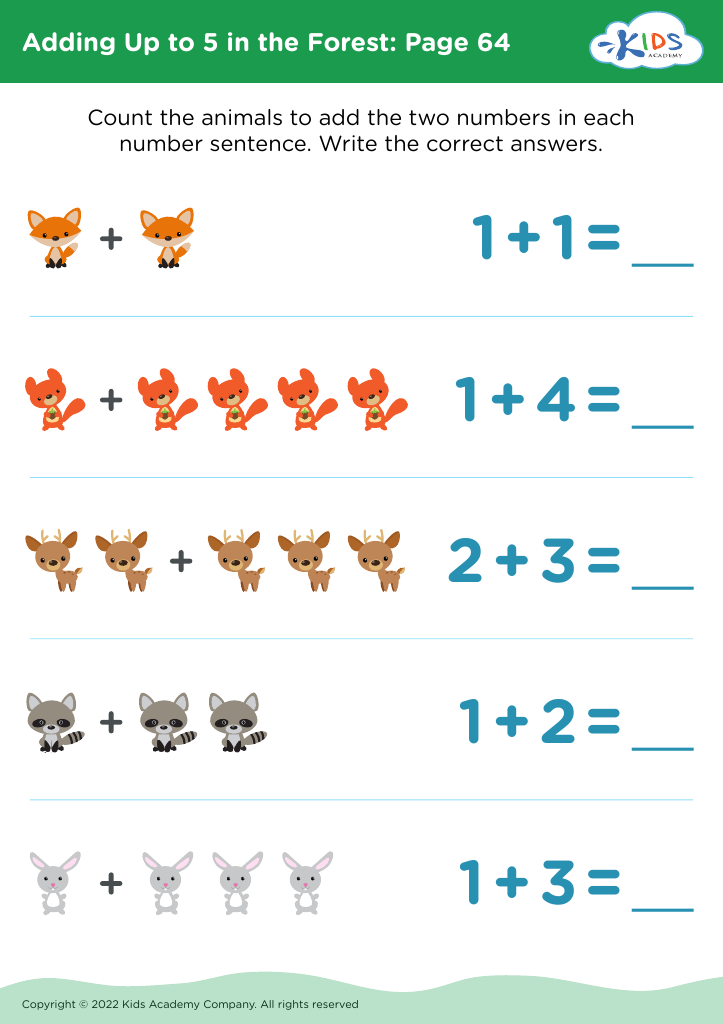Visual Learning Addition Worksheets for Ages 3-5
87 filtered results
-
From - To
Discover our engaging Visual Learning Addition Worksheets designed specifically for children aged 3 to 5. These colorful and interactive resources help young learners grasp basic addition concepts through visual aids, making math fun and accessible. Our worksheets utilize images and playful themes to encourage exploration and understanding of addition while enhancing fine motor skills through tracing and coloring activities. Ideal for preschoolers and kindergarteners, these worksheets foster critical thinking and build a strong mathematical foundation. With a variety of exercises, your child will gain confidence in addition and develop a love for learning. Join us today and let the arithmetic adventure begin!
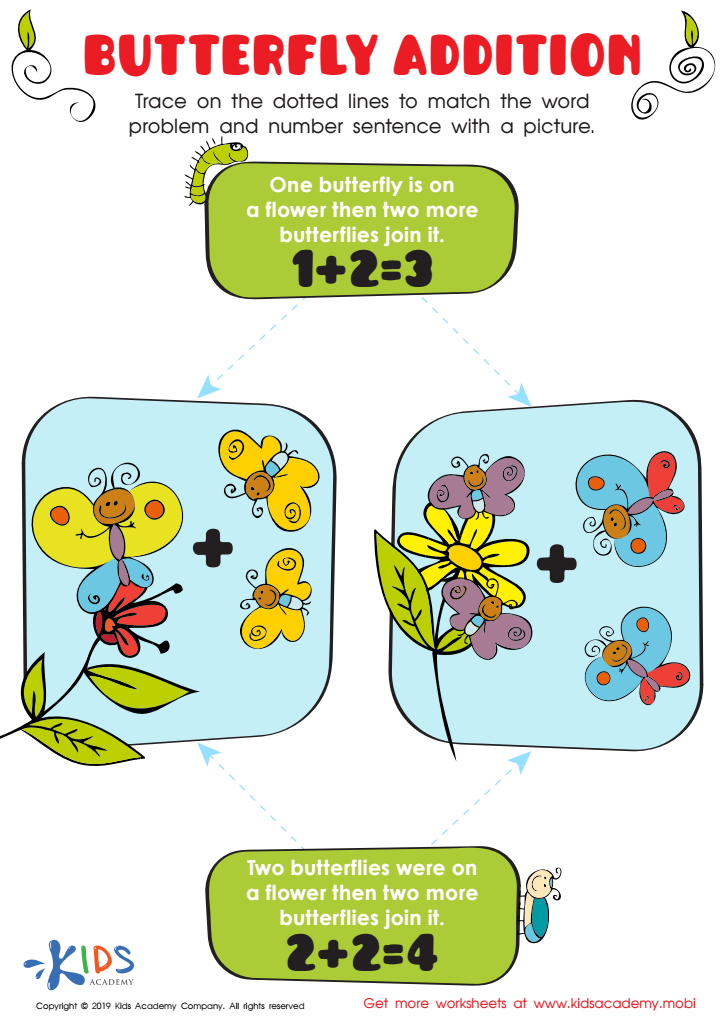

Butterfly Addition Worksheet
Visual Learning Addition for ages 3-5 is crucial for young children's cognitive development and early mathematics skills. At this age, children are naturally inclined to explore and learn through their senses, and visual learning engages them effectively. Utilizing visual aids, such as colorful counters, pictures, and diagrams, helps make abstract concepts more concrete, enabling children to grasp the concept of addition in a tangible way.
Parents and teachers should care about this approach because it not only promotes numerical understanding but also fosters critical thinking and problem-solving skills. When children visualize addition, they learn to relate quantities and understand the relationships between numbers, which lays a strong foundation for future math skills. Additionally, visual learning caters to diverse learning styles, ensuring that all children, whether they are visual, auditory, or kinesthetic learners, can engage with mathematics comfortably.
Moreover, fostering a positive attitude towards math at a young age is vital. By using visual methods, we can cultivate curiosity and confidence in children. This confidence can lead to better performance in mathematics as they grow older. Ultimately, supporting visual learning in early education enriches children's overall learning experience and sets them up for academic success.
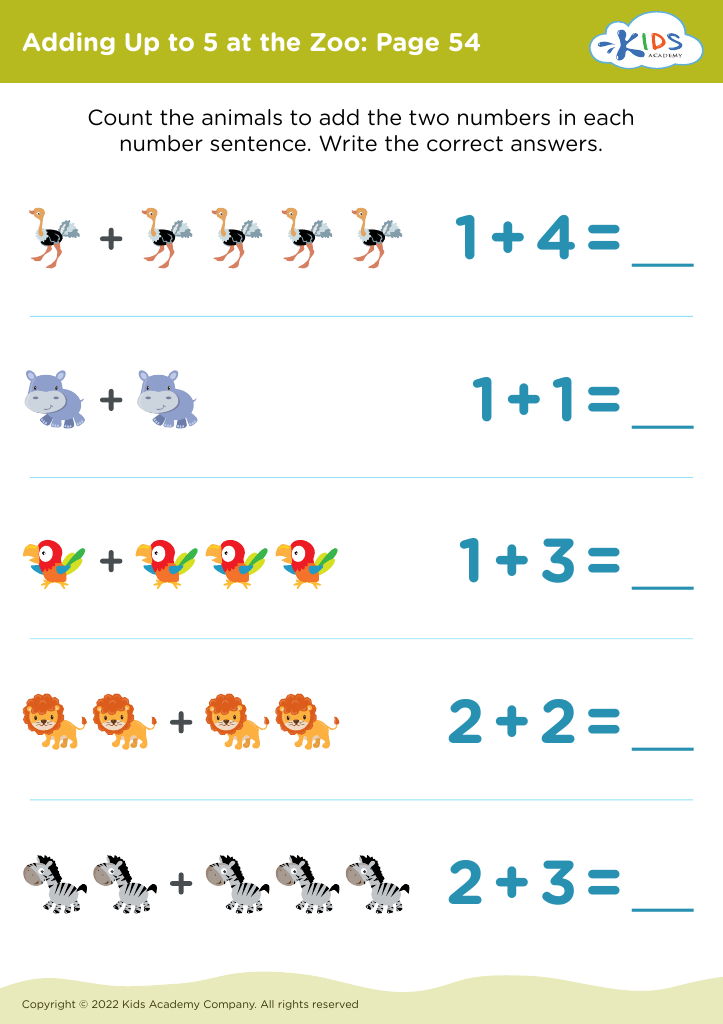

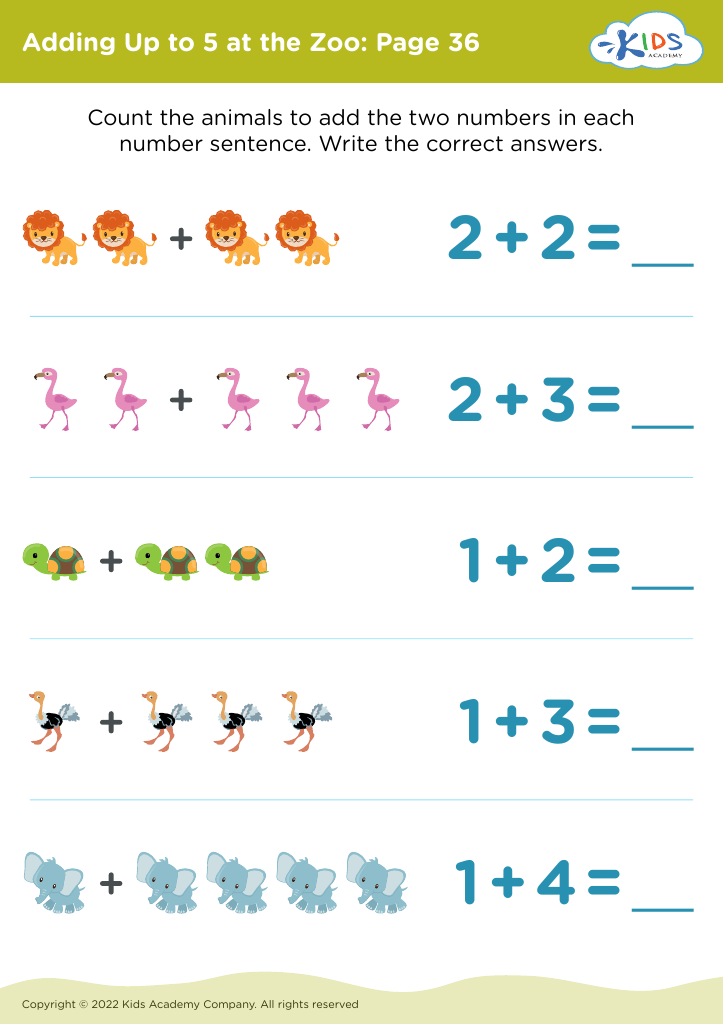
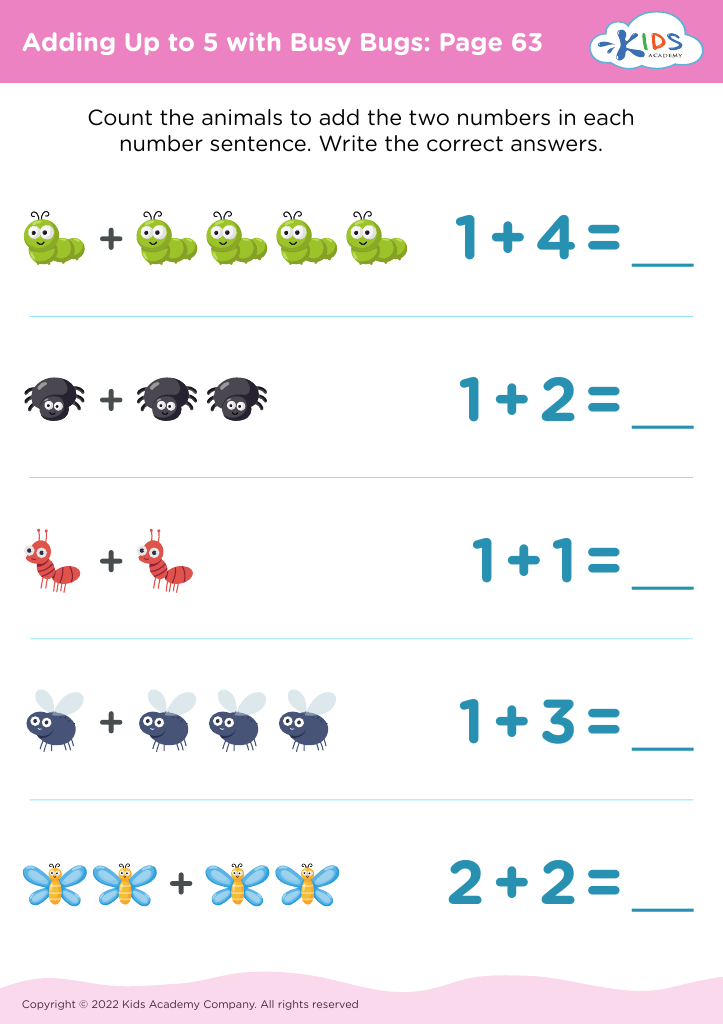
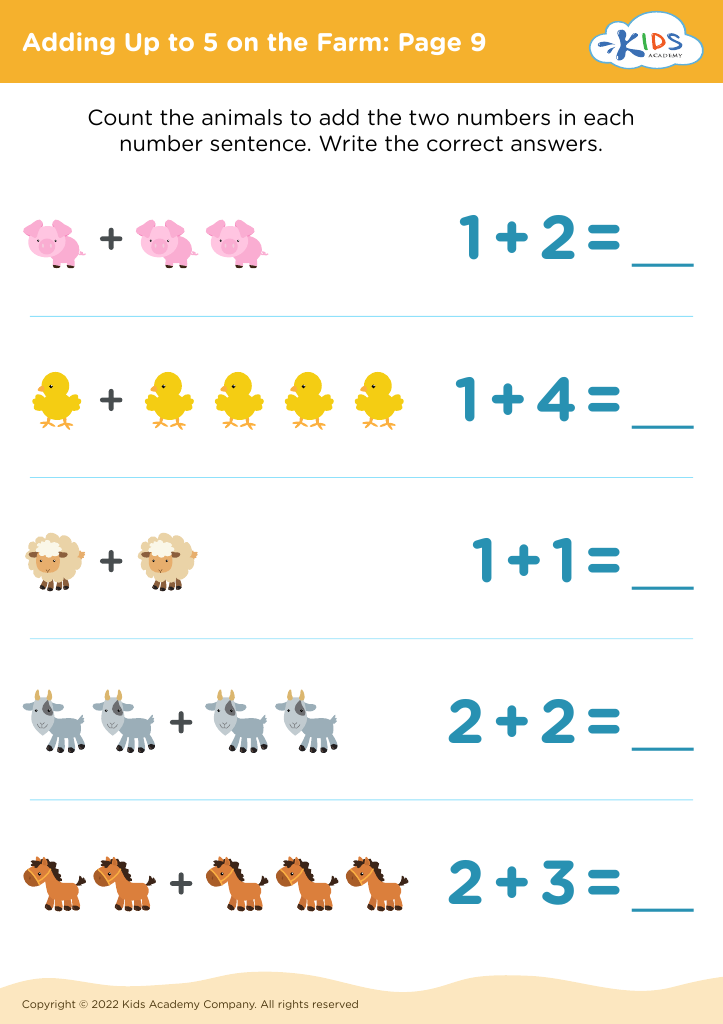
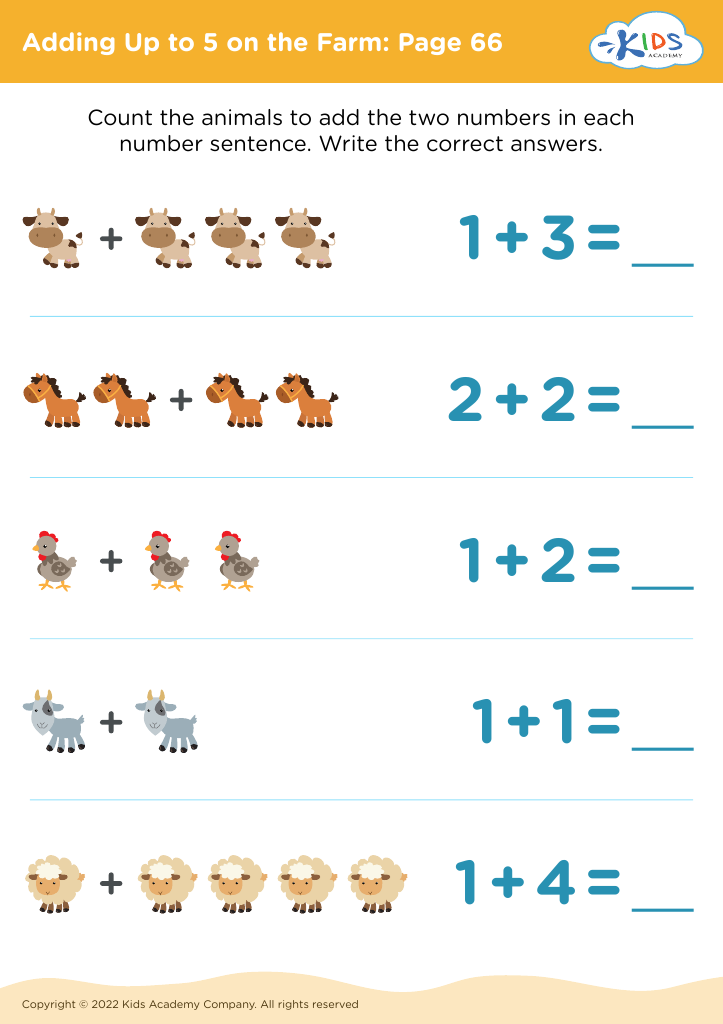

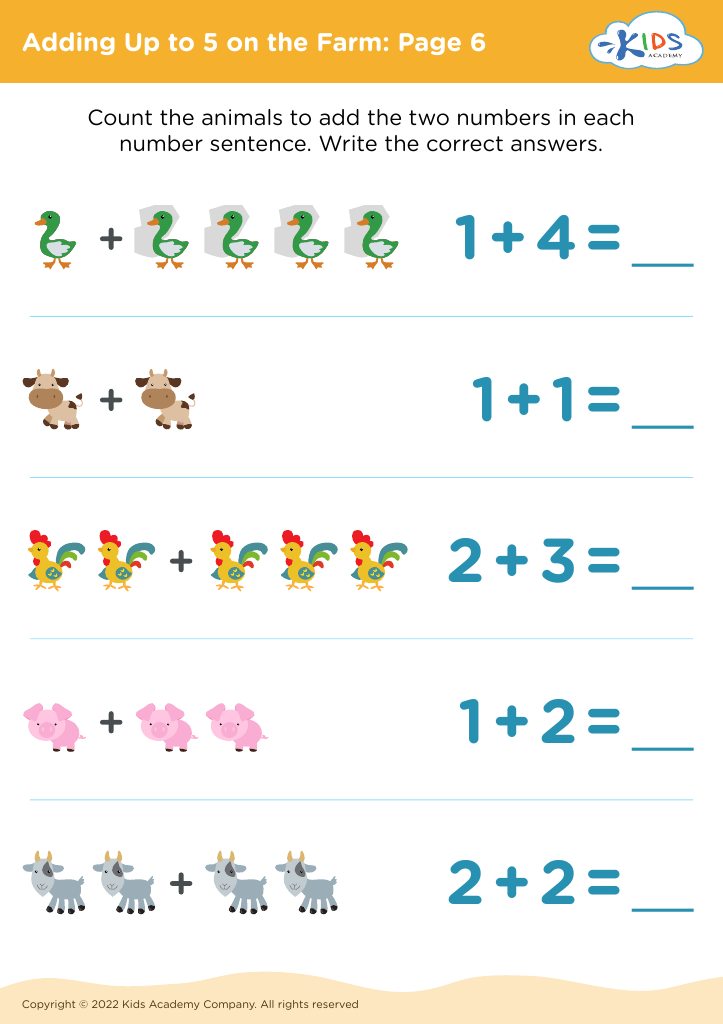
 Assign to My Students
Assign to My Students
